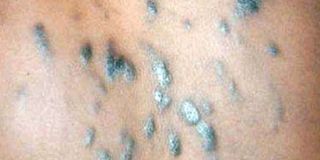Prime
Is Kaposi sarcoma a sign of HIV infection?

What you need to know:
- HIV infection may reduce one’s strength to fight germs that cause infection (immunity), including those causing shingles, the reason you may have been told to check for HIV, a disease usually associated with shingles.
Last year, I suffered from Kaposi sarcoma (kisipi) although all HIV test results come out negative. Are the test kits faulty? Rafiki
Dear Rafiki,
Kisipi is a herpes zoster reinfection of the skin by a virus that causes chicken pox, usually in young people.
Once one gets herpes zoster infection, the germs may remain hiding from the body defences in skin nerves and reappear if there is a trigger, including old age, stress, use of drugs or disease conditions that reduce one’s ability to fight disease causing germs. These include diabetes, HIV infection, use of steroid drugs including prednisone or dexamethasone or drugs used to treat cancer.
HIV infection may reduce one’s strength to fight germs that cause infection (immunity), including those causing shingles, the reason you may have been told to check for HIV, a disease usually associated with shingles.
In the early stages of infection, HIV may decimate one’s immunity leading to shingles and other conditions including tuberculosis, oral candidiasis and fever blisters, among other diseases. HIV infection may reduce one’s immunity in early stages of infection or much later, a time when one may get shingles.
Since there are other reasons apart from HIV infection why shingles may recur, this could be the reason you tested HIV negative.




